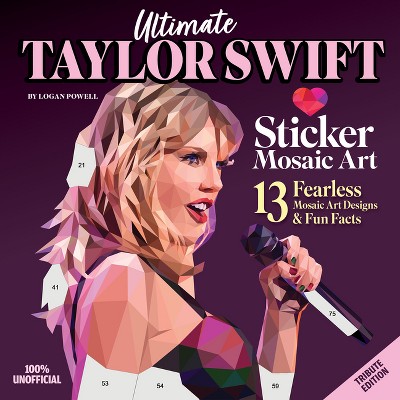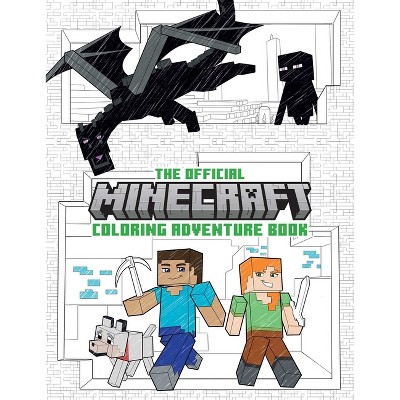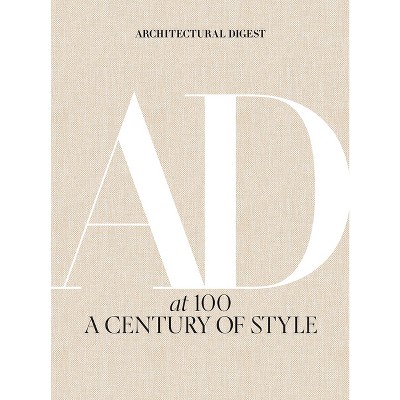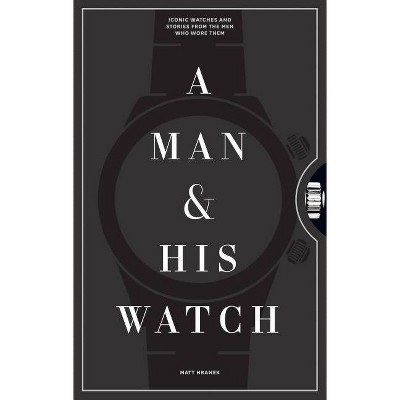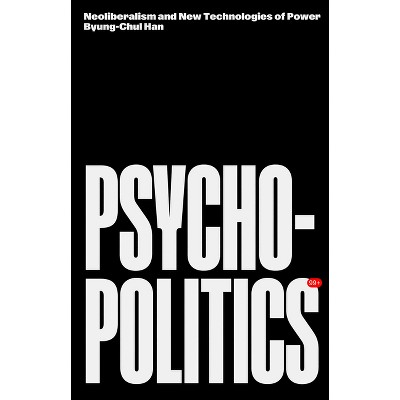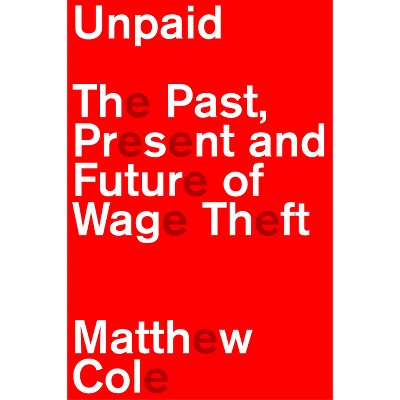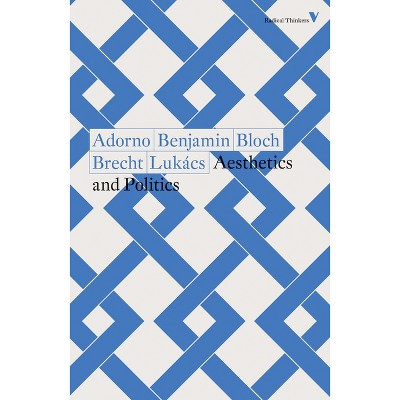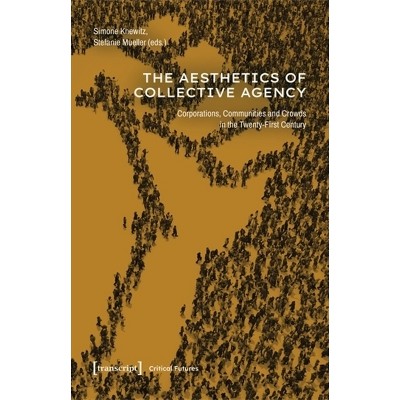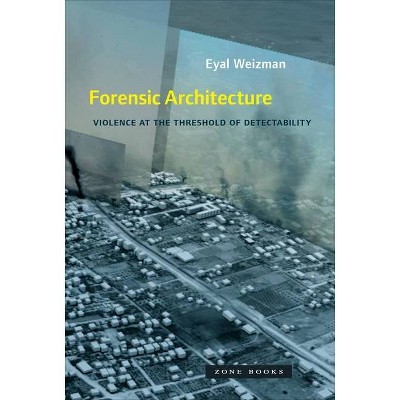$17.39 sale price when purchased online
$19.95 list price
Target Online store #3991
About this item
Highlights
- A new field of counterinvestigation across in human rights, art and law Today, artists are engaged in investigation.
- About the Author: Matthew Fuller is an author and Professor of Cultural Studies at the Department of Media and Communications, at Goldsmiths, University of London.
- 272 Pages
- Art, Criticism & Theory
- Series Name: Futures
Description
About the Book
"Increasingly artists have become political activists. Their work has taken on the shape of a criminal investigator. Where does this turn toward forensics come from? How do we understand it as a aesthetic practice? The words investigative and aesthetics seem like an uneasy match. But this book claims that expanded aesthetic practices can powerfully reshape our approach to the question of truth. Shifts in technology and new ways of thinking together offer a means of searching for facts and understanding them anew. This book proposes that the current period is defined by new forms of "aesthetic power" composed both by sensing, detection and prediction and the torrential proliferation of images and data. To evade and oppose this form of state-corporate domination we can learn to join the dots between traces within our interwoven digital, built and natural environments. Investigative aesthetics can also enable new collaborative forms of verification. Rather than rely on official expertise it calls for an open process that combines the perspectives of communities exposed to state or corporate violence with those of artists, activists and scientists. This new practice takes place equally in the field, the art studio as in the scientific laboratory, online and in the streets, as it strives towards the construction of a new "common sensing""--Book Synopsis
A new field of counterinvestigation across in human rights, art and law Today, artists are engaged in investigation. They probe corruption, human rights violations, environmental crimes and technological domination. At the same time, areas not usually thought of as artistic make powerful use of aesthetics. Journalists and legal professionals pore over opensource videos and satellite imagery to undertake visual investigations. This combination of diverse fields is what the authors call "investigative aesthetics" the mobilisation of sensibilities associated with art, architecture and other such practices in order to speak truth to power. Investigative Aesthetics draws on theories of knowledge, ecology and technology; evaluates the methods of citizen counter-forensics, micro-history and art; and examines radical practices such as those of WikiLeaks, Bellingcat, and Forensic Architecture. These new practices take place in the studio and the laboratory, the courtroom and the gallery, online and in the streets, as they strive towards the construction of a new common sense. Matthew Fuller and Eyal Weizman have here provided an inspiring introduction to a new field that will change how we understand and confront power today. To Nour Abuzaid for your brilliance, perseverance, and unshaken belief in the liberation of Palestine.Review Quotes
"Sharp ... [Investigative Aesthetics] is invaluable as a hyper-aesthetic object itself."
--Michael Eby, Los Angeles Review of Books "Aesthetics is a battleground, a contested space; Investigative Aesthetics is part battle-plan or tactical guide and, more fundamentally, part user's manual for surviving this beautiful and terrifying world."
--Mark Rappolt, ArtReview "A fascinating treatise on how our political world functions today and how we might seek to interrupt it."
--Jack Smurthwaite, Art Monthly "Expansive ... [Fuller and Weizman] explore sense and sense-making in its fullest political terms: understanding the systemic forces of capitalism as well as an individual's sense of morality."
--Chris Hayes, Tribune "An undeviating announcement of the subversive potential of contemporary aesthetic practices. "
--Lawrence Abu Hamdan, White Review ("Books of the Year 2021")
About the Author
Matthew Fuller is an author and Professor of Cultural Studies at the Department of Media and Communications, at Goldsmiths, University of London. He is known for his writings in media theory, software studies, critical theory and cultural studies.He is the author of Media Ecologies, and with Andrew Goffey, Evil Media. Eyal Weizman directs the Centre for Research Architecture and the international investigative project, Forensic Architecture. He is the author of Hollow Land, The Least of All Possible Evils, and Forensic Architecture. After a hugely acclaimed exhibition at the ICA, Forensic Architecture was shortlisted for the 2018 Turner Prize. They have exhibited around the world, and in 2019, their work was included in the Whitney Biennial.Dimensions (Overall): 8.2 Inches (H) x 5.4 Inches (W) x .8 Inches (D)
Weight: .57 Pounds
Suggested Age: 22 Years and Up
Number of Pages: 272
Genre: Art
Sub-Genre: Criticism & Theory
Series Title: Futures
Publisher: Verso
Format: Paperback
Author: Matthew Fuller & Eyal Weizman
Language: English
Street Date: August 24, 2021
TCIN: 1004094225
UPC: 9781788739085
Item Number (DPCI): 247-19-2095
Origin: Made in the USA or Imported
If the item details above aren’t accurate or complete, we want to know about it.
Shipping details
Estimated ship dimensions: 0.8 inches length x 5.4 inches width x 8.2 inches height
Estimated ship weight: 0.57 pounds
We regret that this item cannot be shipped to PO Boxes.
This item cannot be shipped to the following locations: American Samoa (see also separate entry under AS), Guam (see also separate entry under GU), Northern Mariana Islands, Puerto Rico (see also separate entry under PR), United States Minor Outlying Islands, Virgin Islands, U.S., APO/FPO
Return details
This item can be returned to any Target store or Target.com.
This item must be returned within 90 days of the date it was purchased in store, shipped, delivered by a Shipt shopper, or made ready for pickup.
See the return policy for complete information.


